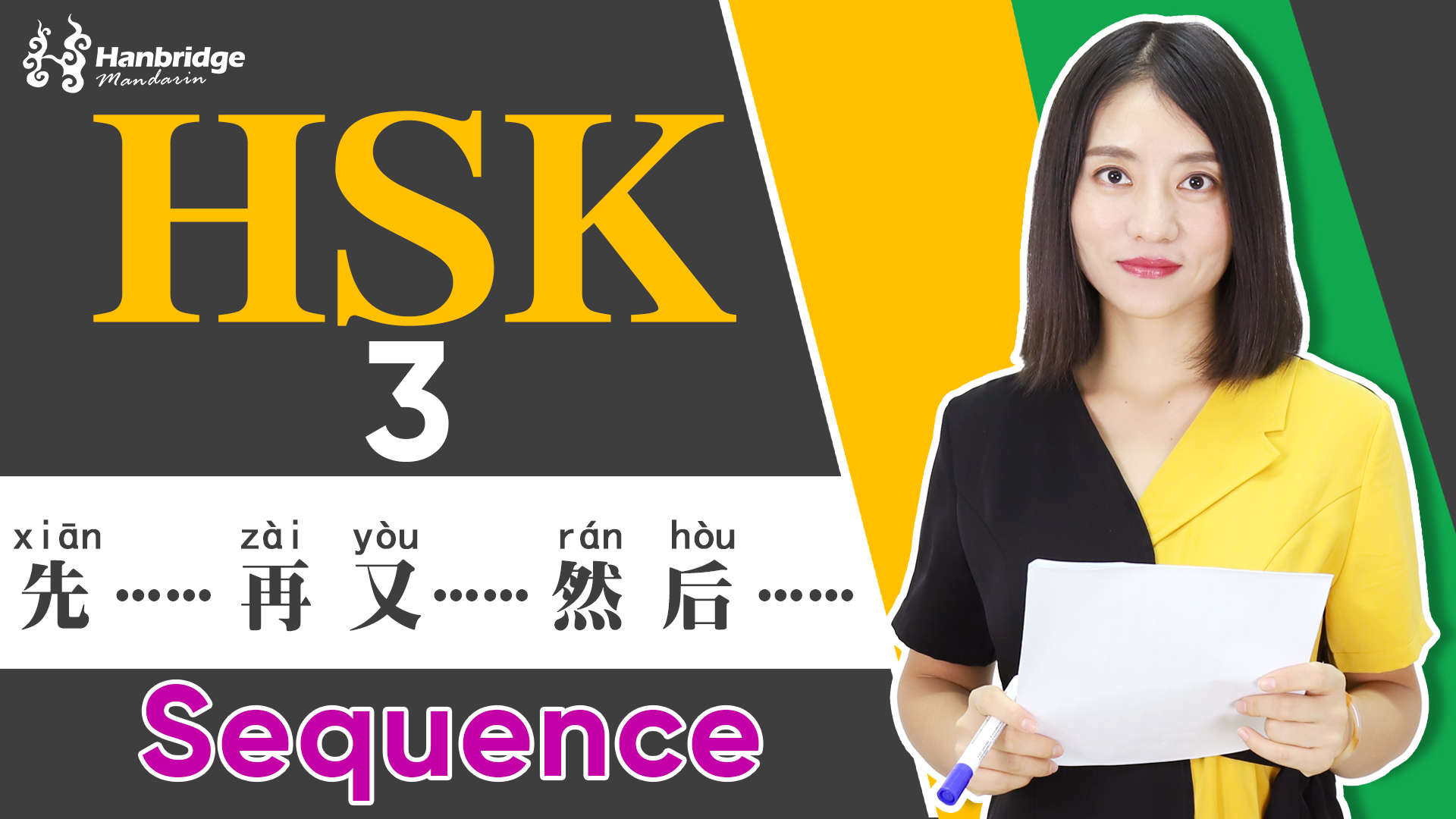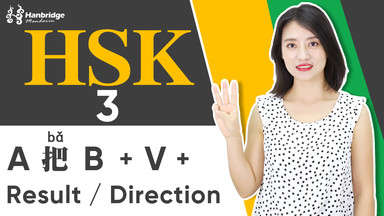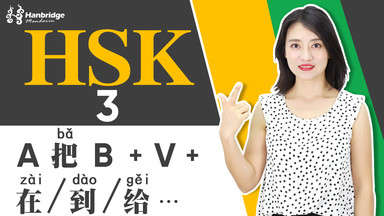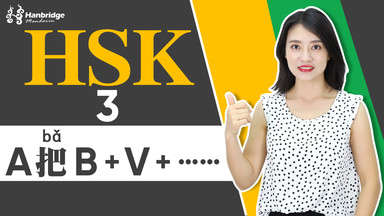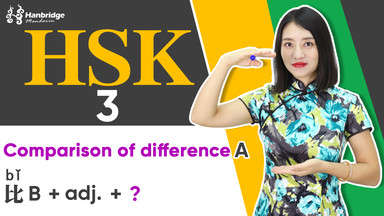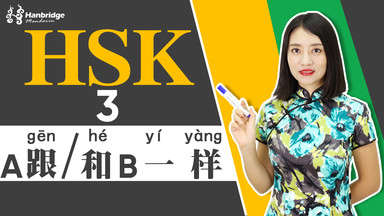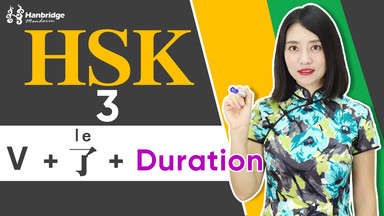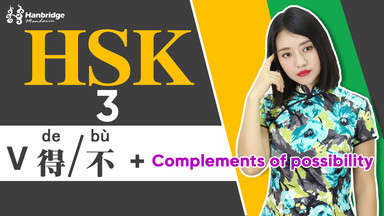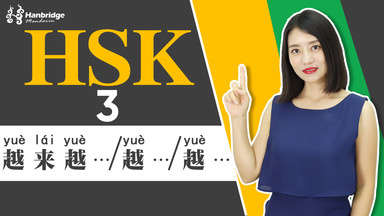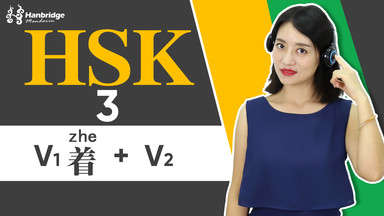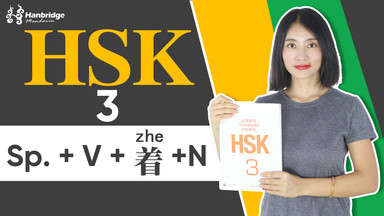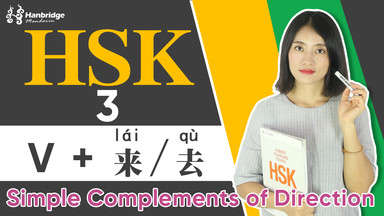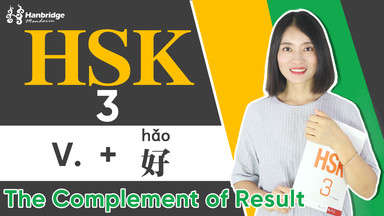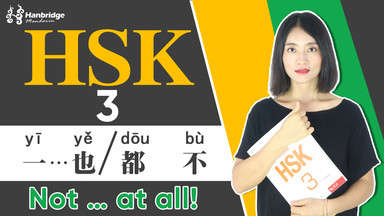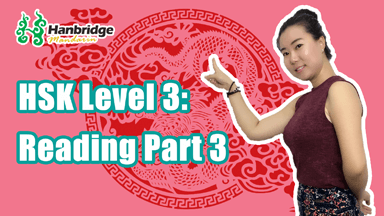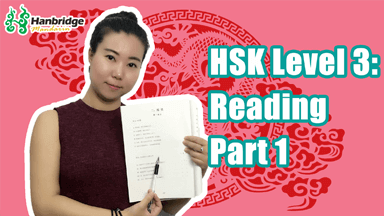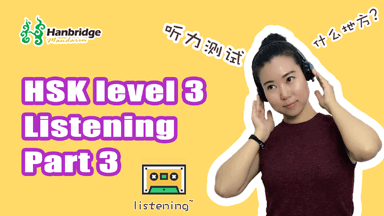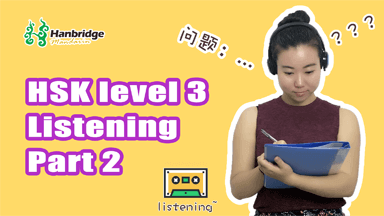HSK 3 Conjunctive word 3
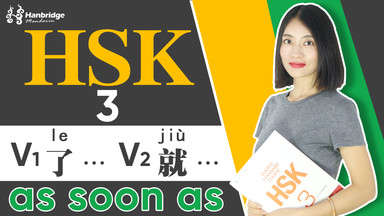

Teacher: Vikki Lv Experience: 4 years
HSK 3 Conjunctive word 3
Teacher : Vikki Lv
你好!我是汉桥的老师,欢迎大家和我一起学习HSK3.
In English, we use “as soon as” to indicate two actions occurring successively, with the second immediately following the first.
For example, I’ll call you as soon as I arrive.
Today I’ll teach you how to express “as soon as” in Chinese. 我们开始吧!
Let’s see an English sentence first:
I will call you as soon as I arrive in Beijing.
There are two actions in this sentence: call you, arrive in Beijing. Even in English we say “call you” first then “arrive in Beijing”, but in terms of time, “arrive in Beijing” happens first, and “call you” follows it.
So let’s call “arrive in Beijing” (V1) and “call you” (V2)
I will call you as soon as I arrive in Beijing.
V2 V1 In Chinese, we say this sentence in chronological order. So we translate this sentence into:
我 到北京 给你打电话
V1 V2 In Chinese, we use “了“ after a verb to indicate that the action is finished. So let’s add “了” to V1 to make it finished。
V1我 到了北京
And the word 就 means as soon as,so let’s put it in the middle to connect the two actions:
我到了北京就给你打电话。
V1 V2 And that’s it!
We use this structure to indicate that V2 will happen immediately following the first. In Chinese, the sentence order is V1了…… 就 V2……
我们看一下例子:
我很累,洗了澡 就睡觉。
As I’m very tired, I can’t do anything, so I’ll go to sleep immediately after I take shower. So I finish the shower, then I’ll go sleep.
再看一个例子:
他起了床 就出门了。
Sometimes, the two actions are done by two different subjects. In this case, we put the second subject right before”就”.
S1 V1了…… S2 就V2……
我们看一下例子:
爸爸回来了 我们就吃饭。爸爸is the subject of V1回来 and 我们is the subject of V2吃饭.
老板同意了 我们就开始这个项目。老板is the subject of V1同意,and 我们is the subject of V2开始这个项目。
我们看一下以前的考试题:
1.……我刷了牙,洗了脸,就出来了,差点儿忘了关门。-H31001
2.下了飞机,就给我来电话。-H31003
3.他们到了就告诉我。-H31004
好了,你学会了吗?来做一下练习吧:
1.A:我们什么时候开会?
B:老板 (/)(回公司)
2.妈妈昨天晚上 (/)(到家、做晚饭)
3.爸爸说:你 (/)(放假、去旅游)
你喜欢和我们一起学习吗?If you like it, please subscribe and stay tuned 下次见!

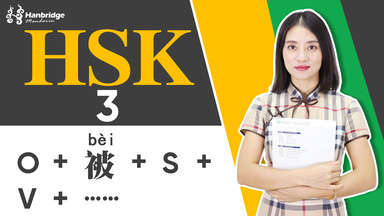

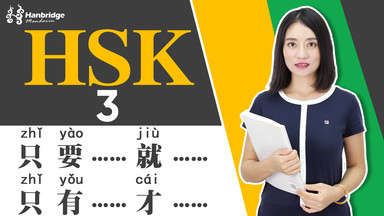


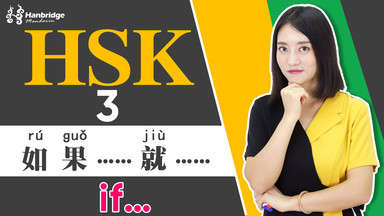
.jpg)
